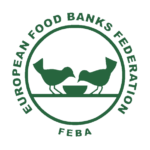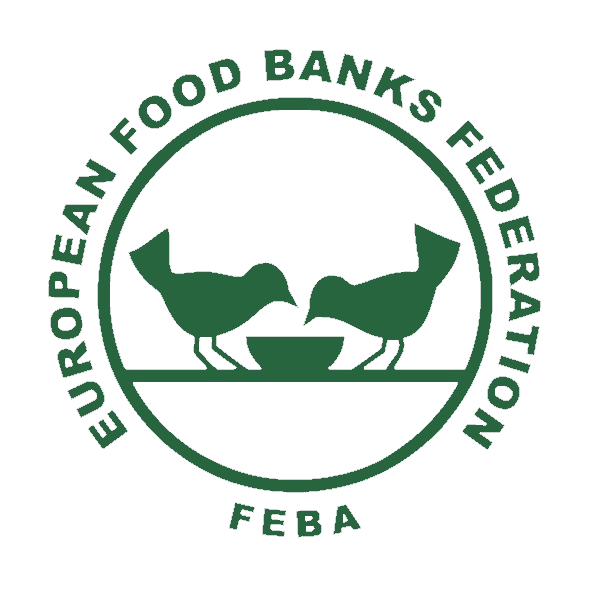FOOD COLLECTIONS 2020
2020 is a challenging year for the Food Banks. Coronavirus pandemic brought new challenges, and one of those is the organization of the yearly food collections. Our members had to adapt to keep the activity going.
Below you find the details of the food collections organized in different countries.
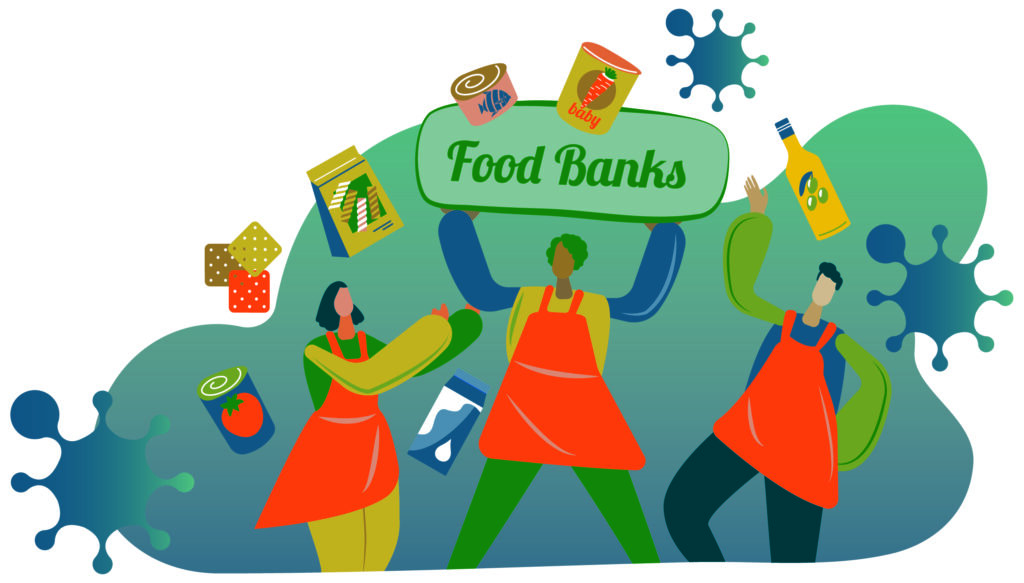
Food collections at the time of COVID-19
Online skill-sharing session organized by FEBA on 9 October 2020
With the COVID-19 outbreak, Food Banks have been adapting their daily activities. This is also the case of a fundamental yearly event: food collections.
In this context, the European Food Banks Federation organized a skill-sharing session on 9 October. The goal of the session was to share experiences and best practices between members who already organized food collections during the pandemic and others who had to face this challenge in the coming period.

FOOD BANK ALBANIA / Albania
The food collection from Food Bank Albania, organized on 16 and 17 October, was challenging this year because of the COVID-19.
The Food Bank made sure that all volunteers were wearing masks and visible gloves, that alcohol products at the disposal of the volunteers and that the volunteers had no fever.
Shoppers were willing to donate but because of the lower economy, the Food Bank didn’t receive what they have received in the past, although they reached the expected amount of food.
At Food Bank Albania, the efforts are focused towards the fresh produce as it is easier to receive in larger quantities and it is in high demand from the partnering soup kitchens that the Food Bank supports. Because of this, in the last few years, the general food supply from actions at supermarkets has generally been lower.
In the supermarket campaigns, the Food Banks has estimated that they receive about 50 kgs of food per each volunteer per shift (two hours of their time). It feels good as a volunteer to know that your 2 hours of work equals about 50 kgs of food, more than one parcel for a hungry family.
- 16-17 October 2020

WIENER TAFEL / Austria
The Food Collection in Austria took place from 10 to 22 of August 2020. It was organized by Wiener Tafel in LIDL stores without any volunteers. Clients could buy voucher cards at the cash desk and LIDL doubled the amount for the benefit of Wiener Tafel.
Wiener Tafel started organizing Food Collections two years ago in 15 LIDL stores in the Vienna region and then they expanded with 200 stores in the entire country.
They used to have elderly and school-age children as volunteers and, therefore, due to the COVID-19 situation, they had to reconsider their organization. Consequently, they contacted LIDL to build together a digital Food Collection. The digital Food Collections with cards were already organized last year by Food Banks in Germany (Tafel Deutschland) and Switzerland (Swiss Food Bank) in cooperation with LIDL.
Customers in the supermarkets could choose between a variety of 7-8 products ranging from 30 cents to 2 euros (at retailer prices).
LIDL decided to double the number of donated products and organized the transportation to the warehouse of Wiener Tafel. One week after the collection, the food was delivered to the warehouse in Vienna and then transferred to the local Food Banks in the country.
LIDL managed the promotion and Wiener Tafel enforced it through their social media channels. 250 stores were involved for a total of more than 60.000 food and hygiene products collected (worth over 50.000 €).
The feedback both from LIDL and from Wiener Tafel was extremely positive.
Wiener Tafel would like to continue the path on these digital Food Collections – as long as the pandemic crises continues without volunteers. When the pandemic is over, engaging one volunteer at the entrance of each supermarket could be a further development of this food collection to involve even more consumers.




- 10-22 August 2020
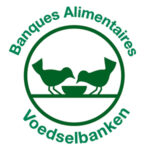
BANQUES ALIMENTAIRES - VOEDSELBANKEN / Belgium
The food collection was organized in Delhaize shops, without volunteers.
Clients could donate via their smartphone. At the cash desk they showed the meal they wanted to donate and the money corresponding was given to the Belgian Food Banks.

- 5-25 November 2020
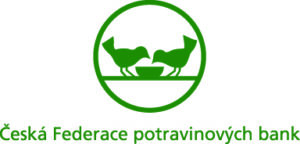
CESKA FEDERACE POTRAVINOVYCH BANK / Czech Republic
The food collection was organized in 380 shops on 21 November with volunteers, with protective equipment for all volunteers. Other shops proposed a ‘static food collection’ and it was also possible to donate online until the 1st of December.


- 21 November 2020
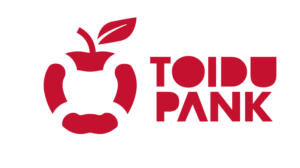
TOIDUPANK / Estonia
Toidupank traditionally organizes food collections twice a year (December and April). But this year, due to the emergency, from 12 March to 1 May all public gatherings were prohibited so they cancelled the food collection in April. And they decided to organize it in September in coordination with Estonian Health Board, involving 49 stores and 15 Food Banks.
Even if they engaged volunteers of all ages (included children), they did not ask schools to participate as usual.
The decision of organizing a food collection was pushed by the necessity to increase food stocks.
In coordination with Estonian Health Board they tried to minimize the risk of their volunteers getting infected by providing gloves, masks and disinfectants, practicing physical distancing between donators and volunteers and decreasing the number of stores (but increasing the engagement with various organisations for volunteer recruitment).
The overall feedback was positive with 22,400 kilos of food collected (10.000 less than usually).
Toidupank is orgnazing a winter edition of the food collection on 11 and 12 December. 56 grocery stores across Estonia will participate. 800 volunteers are expected to help during this food collection. They will distribute flyers, accept food donations in stores and prepare the transport to local Food Banks.
The safety of volunteers is very important and will be ensured thanks to protective equipment.


- 11-12 December 2020

BANQUES ALIMENTAIRES / France
The last weekend of November was held the 36th “Collecte Nationale”, the big food collection in France. An event that the Food Banks wanted to maintain despite the confinement and which once again demonstrated the generosity of all.
The first trend indicates that 9000 tons of food corresponding to 18 million meals were offered during the weekend, despite complex organizational conditions. The supermarket chains have also responded, welcoming volunteers and setting up coupons at the cash desk. Some have also planned to supplement donations from the general public.
“With a result close to our objective, this 2020 edition is very satisfactory in view of the mobilization deployed and the exceptional circumstances. But we must remain vigilant and continue to look for resources that will enable us to meet a demand that has increased by 20%”, explains Claude Baland, President of the Fédération Française des Banques Alimentaires.
During these 3 days, the thousands of volunteers carried the colors of solidarity high. Testimonials on social networks are all proof of this commitment to the fight against food insecurity.
The food collection in France traditionally represents 11% of the total food collected. The products will therefore already make it possible to meet the needs of the coming months. They will be redistributed to vulnerable people by the 5,400 associations of the network.

- 27-29 November 2020

BANQUES ALIMENTAIRES / France
The last weekend of November was held the 36th “Collecte Nationale”, the big food collection in France. An event that the Food Banks wanted to maintain despite the confinement and which once again demonstrated the generosity of all.
The first trend indicates that 9000 tons of food corresponding to 18 million meals were offered during the weekend, despite complex organizational conditions. The supermarket chains have also responded, welcoming volunteers and setting up coupons at the cash desk. Some have also planned to supplement donations from the general public.
“With a result close to our objective, this 2020 edition is very satisfactory in view of the mobilization deployed and the exceptional circumstances. But we must remain vigilant and continue to look for resources that will enable us to meet a demand that has increased by 20%”, explains Claude Baland, President of the Fédération Française des Banques Alimentaires.
During these 3 days, the thousands of volunteers carried the colors of solidarity high. Testimonials on social networks are all proof of this commitment to the fight against food insecurity.
The food collection in France traditionally represents 11% of the total food collected. The products will therefore already make it possible to meet the needs of the coming months. They will be redistributed to vulnerable people by the 5,400 associations of the network.

- 27-29 November 2020
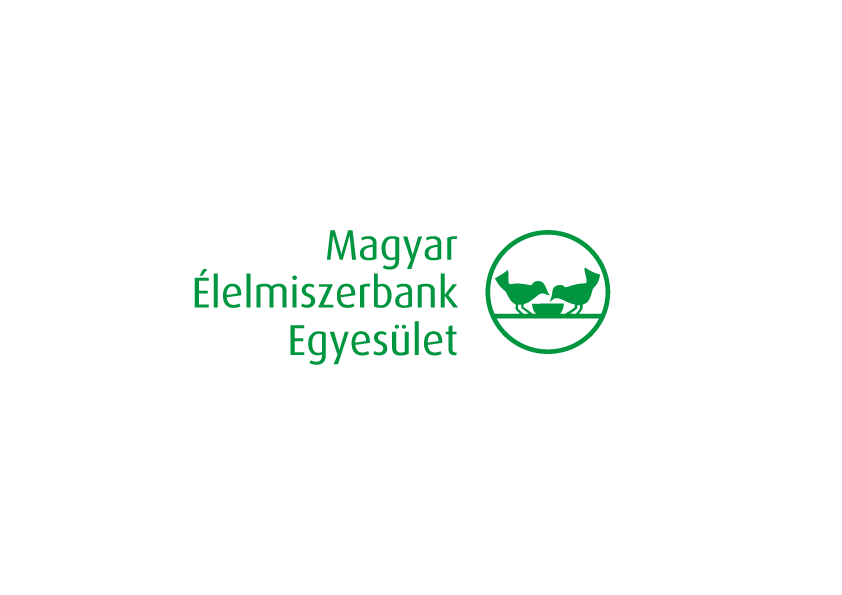
ELELMISZERBANK / Hungary
The Christmas food collection from Magyar Élelmiszerbank Egyesület, the Food Banks in Hungary, took place on November 27, 28 and 29. Volunteers were present in more than 250 stores in nearly 160 settlements across the country. 250 tons of food were collected!
- 27-29 November 2020

FOODCLOUD / Ireland
FoodCloud was part of “Food for Ireland”, the first ever national in-store food appeal where shoppers could donate ambient stock across over 400 retail outlets from 17 to 20 September.
FoodCloud decided to set “The Food for Ireland Appeal” with the aim of ensuring the continuity of supply of ambient products to communities impacted by COVID-19. They were able to involve four big retailers: Aldi, Tesco, LIDL and Eurospar. Trolleys were present in the stores where people could drop donations of food products and consumers could choose ambient products over six categories: breakfast, cooking sauces, hot drinks, rice and pasta tinned/soup, beans, fruit, and tomatoes.
The food was then delivered to FoodCloud Hubs in Dublin, Cork, or Galway in which 320 corporate volunteers logged, sorted, and packed goods for redistribution in the month of October.
FoodCloud’s ambition was to collect 120 tonnes of food, corresponding to 285,000 meals (equivalent to approximately 2 trolleys per store). In total they were able to collect 43 tonnes of food (the total amount collected in store from all the retailers was 14 tonnes and they did receive donated food stock to the value of €150.000,00 which was equal to 29 tonnes of food).

- 17-20 September 2020

BANCO ALIMENTARE / Italy
The food collection will be “dematerialized”.
On Saturday 28 November people will be invited to buy cards (2, 5 or 10 €) available at the checkout counters of supermarkets and corresponding to the quantity of a basket of products. Subsequently, the value of these cards will be transformed into food and delivered.
Volunteers (only adults) will be present in very limited number (2/3 people per time), outside the entrances of supermarkets to invite those who enter to donate, explaining the new particular method of collection.
It will be possible to buy these cards online from 21 November to 8 December
More info here.
- 28 November 2020
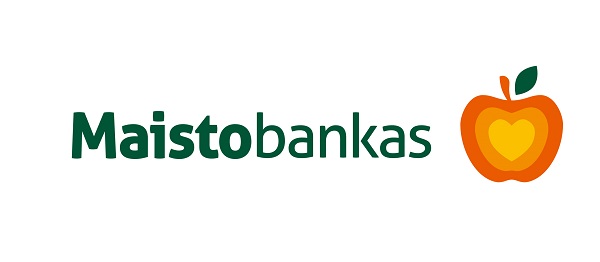
MAISTO BANKAS / Lithuania
4,973 volunteers were present in 354 supermarkets across Lithuania on 23-24 October.
166 tons of products were collected, with a value of 339,029 euros. The products will be donated to 287 charities in order to help people in need.




- 23-24 October 2020
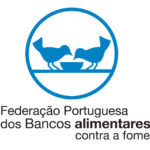
BANCO ALIMENTAR CONTRA A FOME / Portugal
For the moment the organization of the food collection on 28 November – 6 December is planned as usual, with volunteers in stores but also with an online food collection.
The Federação Portuguesa dos Bancos alimentares contra a fome (FPBA) usually organizes a food collection in May. Due to the COVID-19 this year it was not possible to organize it in the traditional way (volunteers in the supermarkets inviting citizens to purchase food for the Food Bank). However, FPBA organized a food collection with vouchers with the result of 498 tons of food collected and an online food collection which resulted in 339 tons of food.
The winter collection was organized between 26 November and 13 December with volunteers in stores during the last weekend of November and with an online food collection via the website https://www.alimentestaideia.pt/.
- 28 Nov - 6 Dec 2020
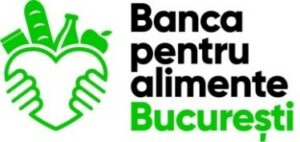
BANCA PENTRU ALIMENTE / Romania
Banca pentru Alimente organized its Christmas food collection with Lidl Romania between 7 and 20 December 2020. The collection in the stores partners is very important because it is the only occasion for individuals to donate food via Food Banks to the people in need.
The products that could be donated by customers were flagged in the shelfs of the participating Lidl stores and special boxes could be found at the stores’ exit, in which citizens can drop the donated products. This food which is part of non-perishable categories is not demanding a special storage temperature, such as: basic food (oil, flour, sugar, rice and baking ingredients), canned vegetables, canned meat, canned fruits, pasta, sauces, UHT milk, packed pastry products, biscuits, coffee, tea, jam.
A total of more than 11,360 kilos of food were collected in 80 Lidl stores across Romania, 17 of them in Bucharest.
- 7 - 20 Dec 2020
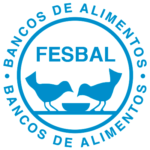
FESBAL / Spain
The food collection in Spain was a success, even though it was organized in a different way due to the pandemic. For safety reasons, the food collected in stores between 16 and 22 November was not put in a container but customers could donate the desired amount at the cashdesk. On top of that, people could also donate online until 13 December.
The mobilization of the donors was big! 31 million euros were collected in total: 23 million euros in stores and 8 million euros online. This represents a 47.6% increase over the target of 21 million euros that had been marked at the beginning of the campaign.
It is a real success, especially in times of COVID-19.
More info here.

- 16-22 November 2020
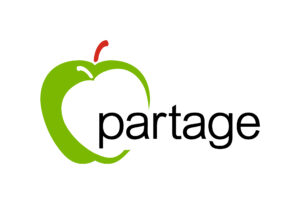
PARTAGE / Switzerland
The people of Geneva have responded overwhelmingly to the call for solidarity launched by Partage, our member in Switzerland, by shopping for the most disadvantaged on November 27 and 28.
The Food Bank collected 275 tons of food products and hygiene items, a sharp increase compared to November 2019 (+ 91 tons). The entire harvest will be stored and redistributed free of charge by Partage to some 50 charities and social services.
This magnificent result is excellent news for the Food Bank, which is in great demand in this time of crisis.
This collective effort was supported by the 1,400 volunteers who took turns from Friday to Saturday in the 90 or so participating food stores. Service clubs, associations, students and teachers, businesses and individuals, many of them gave of their time with great energy for this solidarity action.
The next edition of Sharing Saturday will take place on 4-5 June 2021.



- 27-28 November 2020
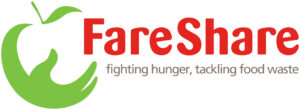
FARESHARE / United Kingdom
Tesco food collection in UK
Tesco ran its annual Winter food collection in November, encouraging customers to donate food items to FareShare. In a year like no other, there were no volunteers in store for the collection but Tesco staff stepping up to help drive donations of much needed store cupboard essentials, such as tins of meat and fish, tea bags, coffee and tinned puddings.
Generous customers donated the equivalent of 325,000 meals to FareShare, which will enable FareShare to continue supporting its network of more than 4,000 charities throughout the tough winter months. For the first time ever, Tesco customers were also able to donate their Tesco Clubcard points to FareShare for the first time ever this year – and can continue to do so into 2021.
Give a Little Love this Christmas
John Lewis and Waitrose launched their much anticipated Christmas adverting campaign last month in support of FareShare and Home-Start. The advert is one element of a major campaign and, using under the strapline ‘Give A Little Love’, aims to make a lasting difference to some of those hit hardest during 2020. Together, John Lewis and Waitrose are aiming to raise £4m for FareShare and Home-Start and donations will be used to provide food, comfort, emotional support and advice to at least 100,000 families in need.
Customer donations, up to the value of £2m, will be match funded by a donation from the John Lewis Partnership. A further fund of over £1m has also been created to ensure all of the retailers’ shops will be actively partnering with FareShare and Home-Start and a range of local family charities in the communities they serve.
British soul singer, Celeste, has also written and recorded an original song – ‘A Little Love’ and every time the track is download her record label Polydor will make a 10p donation to the campaign. A range of ‘Give A Little Love’ merchandise is also on sale on Waitrose and John Lewis websites and in their shops, with all profits from the sale of the products going to the appeal.



- 16-21 November 2020
